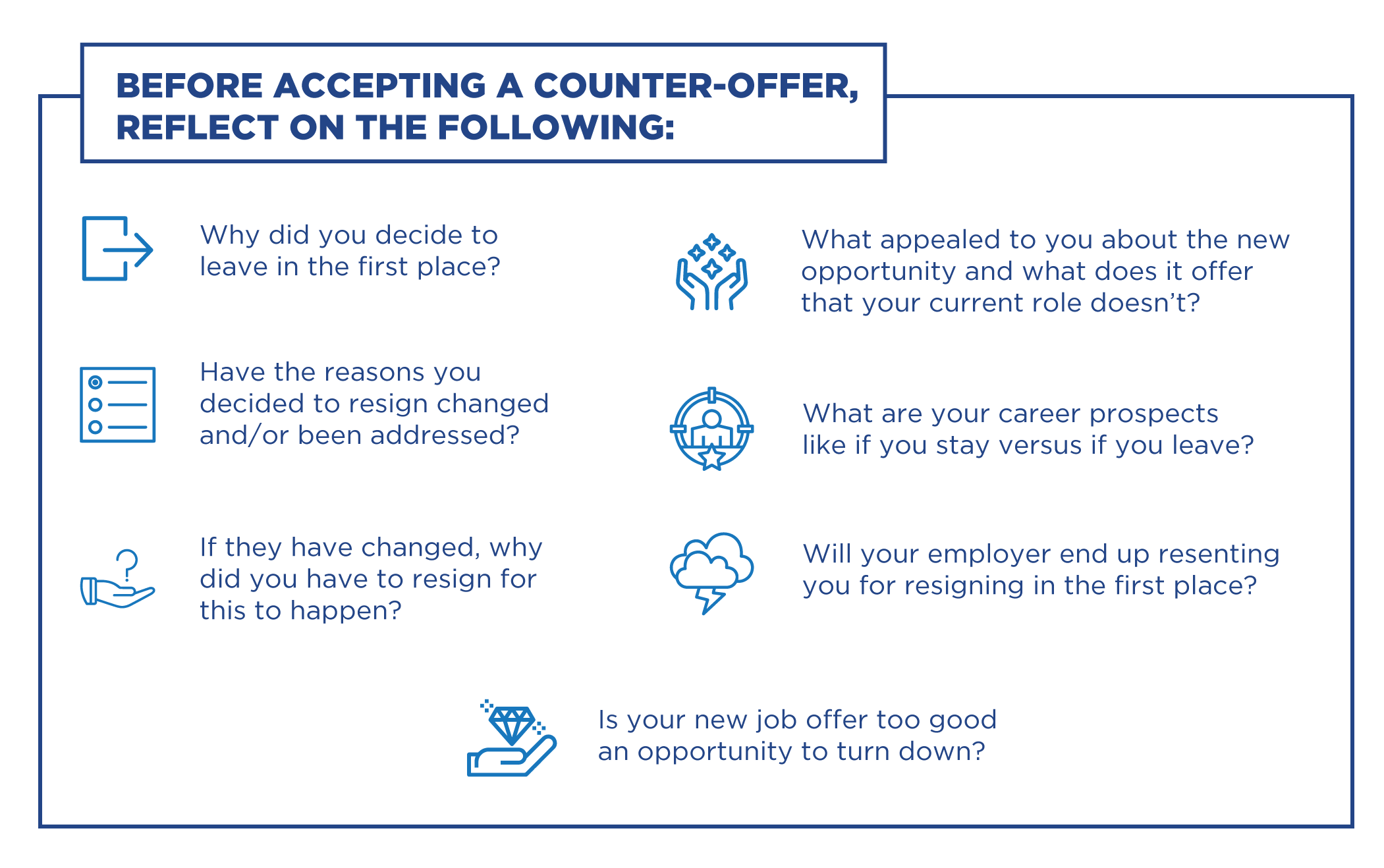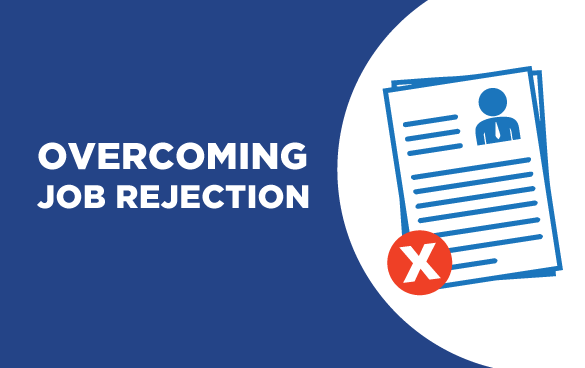You’ve accepted a new job offer and handed in your resignation, but your boss throws a spanner in the works with a counter-offer. Perhaps it’s more money, reduced hours, a new job title or some added benefits. It’s all very appealing, but the question is: should you accept it?
In today’s competitive market, counter-offers are commonplace as companies strive to retain their best talent. However, the reality is that the majority of employees who choose to accept them still end up leaving within six months. In this article, we’ll discuss some of the important factors that you should take into account before you consider accepting a counter-offer.

You Wanted to Leave for a Reason
The chances are, you’ve been thinking about leaving for a while and there is a reason why. Perhaps it was to further your career, a salary increase or more flexibility in your role. Either way, it’s likely that management had been given the opportunity to address the issues. If they’ve been unwilling or unable to meet any requests previously, you need to question why they can now. Ultimately, if someone is truly valued, it shouldn’t take a resignation to deal with any concerns.
Reflect on whether the counter-offer actually addresses the underlying factors as to why you resigned. If it doesn’t, you’re much more likely to find yourself searching for a new role in the near future, and potentially regretting the decision to turn down the other opportunity.
Broken Trust
As soon as someone hands in their notice and expresses a desire to leave, it can certainly impact any existing relationships with management.
Despite having a counter-offer and them wanting to retain a key member of the team, your boss may still question your loyalty, a situation that can be difficult to reverse. With trust now broken, they may never be certain about how long you’ll remain in the company, something that could impact the projects you’re given and any potential pay increases or promotions in the future.
It’s More Likely to Benefit Them
It doesn’t matter what’s been offered or how appreciated you now feel – in the long run, a counter-offer is probably likely to benefit your employer more than anybody.
Question what their motives are. A counter-offer can be a way to avoid short-term business costs and meet the needs of the company at that point.
In most cases, they probably don’t want to start the search for a replacement. This can be for various reasons, such as added pressure on the team, the cost of hiring someone new, and the loss of productivity during the recruitment process and those first few months when a new hire is getting up to speed.
You Can Become Expendable
Although they’ve fought to keep you from quitting, it can also affect your future job security. For example, if redundancies become a reality in the future, you might just find yourself at the top of the list (after all, you did hand your notice in!).
It’s also possible that they could be developing a contingency plan and keeping you on while they find a suitable replacement. If this is the case, it could certainly hinder any progression.
Summary
Although moving to a new role and company is stepping into the unknown (and you can’t predict what will happen), it can often be worth exploring new opportunities. Counter-offers can certainly be an appealing option but very few people who accept them remain with the company in the long-term – usually because the underlying reasons for their exit don’t get addressed.
Unless it effectively deals with your reasons for leaving, we recommend that you go with your first decision and accept the job offer, however, make sure it’s done in the right manner. After all, you don’t want to burn bridges and leave on a bad note.
For more candidate advice, or support with your Construction job search, get in touch with your local OneStaff team.










